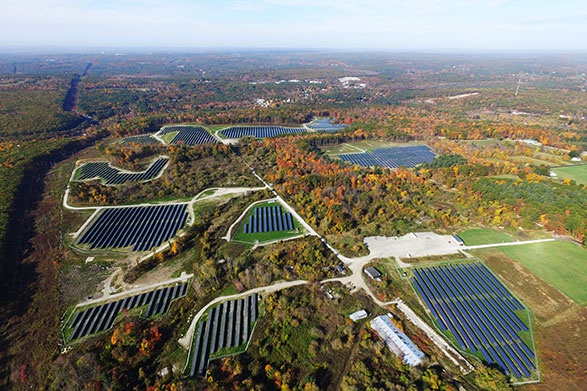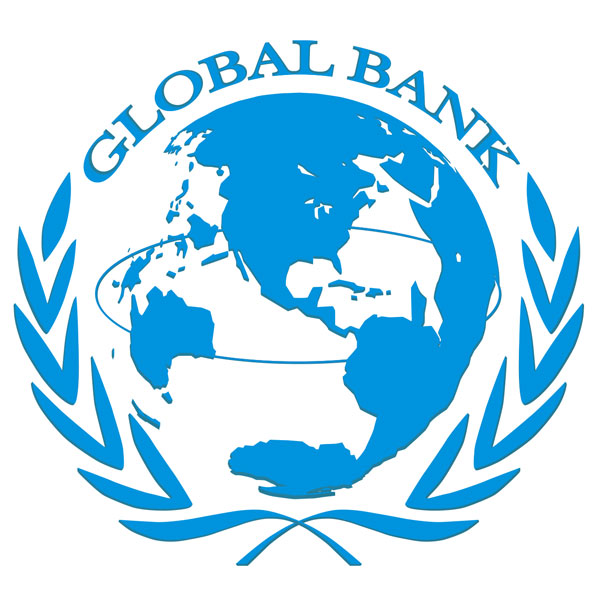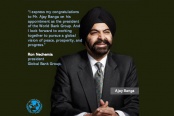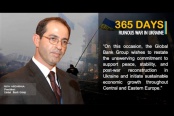
The Global Bank Disaster Risk Reduction and Reconstruction Fund – An Umbrella Trust Fund to take part in Regional Climate Weeks
Los Angeles, CA – August 2, 2019 – The Global Bank Disaster Risk Reduction and Reconstruction Fund – An Umbrella Trust Fund (GB-DRRRF) to take part in the Regional Climate Weeks that are held annually in Africa, Latin America and the Caribbean (LAC) and Asia-Pacific. The Regional Climate Weeks are organized by the Nairobi Framework Partnership (NFP), which supports developing countries in preparing and implementing their Nationally Determined Contribution[] (NDCs). Through its participation in this event, the Global Bank Disaster Risk Reduction and Reconstruction Fund (@GBDRRRF) seeks to explore and exploit synergies with existing and potential partners, to scale up innovative climate finance products and services to enable climate change-related investment, contributing to the economic transition required to address this global issue.
“I believe in our capacity to make the spirit of the Regional Climate Weeks dialogues as a cooperation triumph,” says President Ron Nechemia (@RonNechemia) of the Global Bank Group (@GlobalBankGroup). "Countries, multilaterals, bilateral development banks (MDBs), and other regional organizations, must work toward the common interest, beyond narrow national, organization or corporate interests.”
Acting in Partnerships
The Global Bank Disaster Risk Reduction and Reconstruction Fund – An Umbrella Trust Fund (GB-DRRRF) (@GBDRRRF) is seeking collaboration with a broad array of partners. This allows for enhanced action to address ambitious adaptation and mitigation finance. This includes coordinated support for country-driven long-term strategies for low greenhouse gas emissions and respective technologies for climate-resilient development. It also includes client countries’ efforts for Nationally Determined Contributions implementation and enabling environments, the development of risk-pooling, and the enhancement of harmonized reporting of Global Bank Group’s climate finance. The GB-DRRRF implements the majority of its activities in countries through the Global Bank, in partnership with national, regional and sub-regional organizations, and other international agencies.
ABOUT THE REGIONAL CLIMATE WEEKS
Organized every year in Africa, Latin America & Caribbean, and Asia-Pacific, the Regional Climate Weeks are unique collaborative platforms for government and non-Party stakeholders to address the width of climate issues under one umbrella and unity of purpose. Bringing together diverse stakeholders in public and private sectors around a common goal of addressing climate change is the main goal of the Regional Climate Weeks.
With the urgency of closing the ambition gap in mind, it is critical that the Regional Climate Weeks capitalize on their full potential to mobilize all stakeholders in this endeavor.
“The Global Bank Group is working to advance and strengthen the interdependent and mutually reinforcing pillars of sustainable development – economic development, social development, and environmental protection – at local, national, regional and global levels,” says Ron Nechemia, the President of the Global Bank Group. “The Global Bank Group is developing tools. When natural disasters strike, Global Bank helps Governments access those tools and services to provide life-saving relief, recovery, and sustainable reconstruction.”
The Regional Climate Weeks comprise a series of events that provide space for a grassroots exchange of knowledge and best practices across the region on Nationally Determined Contribution implementation, UN Sustainable Development Goals, and Global Climate Action.
Similarly, the Regional Climate Weeks will contribute to building momentum towards the COP 25 to be held in Chile in December 2019 by ensuring that climate action remains central to the UN Climate Change process.
DIALOGUE'S OBJECTIVES
- Enhance the capacities of participating countries to prepare their second NDCs, building on lessons learned and progress to date in implementing initial NDCs;
- Identify solutions to specific political and technical challenges countries are facing in implementing and enhancing NDCs;
- Provide a forum for peer-to-peer learning and exchange of national experiences related to NDC implementation and enhancement;
- Provide a platform for linking national/regional interests with the international NDC process, and for strengthening existing and/or establishing new partnerships and commitments for ambitious climate action that helps meet the goals of the Paris Agreement and the 2030 Agenda.
The events’ global partners are the United Nations Framework Convention on Climate Change (UNFCCC), Word Bank, United Nations Development Programme (UNDP), United Nations Environment Programme (UNEP), UNEP Partnership with the Technical University of Denmark (UNEP-DTU Partnership), Climate Technology Centre and Network (CTCN) and International Emissions Trading Association (IETA). Regional partners include the African Development Bank (AfDB) in Africa, Inter-American Development Bank (IDB) in LAC and Asian Development Bank (ADB) and UN Economic and Social Commission for Asia and the Pacific (ESCAP) in Asia-Pacific.
| 1 | Intended Nationally Determined Contributions (INDCs) is a term used under the United Nations Framework Convention on Climate Change (UNFCCC) for reductions in greenhouse gas emissions that all countries that signed the UNFCCC were asked to publish in the lead up to the 2015 United Nations Climate Change Conference held in Paris, France in December 2015. These intended contributions were determined without prejudice to the legal nature of the contributions. The term was intended as a compromise between "quantified emissions limitation and reduction objective" (QUELROs) and "nationally appropriate mitigation actions" (NAMAs) that the Kyoto Protocol used to describe the different legal obligations of developed and developing countries. Under the Paris Agreement, adopted in December 2015, the INDC will become the first Nationally Determined Contribution when a country ratifies the agreement, unless they decide to submit a new NDC at the same time. Once the Paris Agreement is ratified, the NDC will become the first greenhouse gas targets under the UNFCCC that applied equally to both developed and developing countries. |







